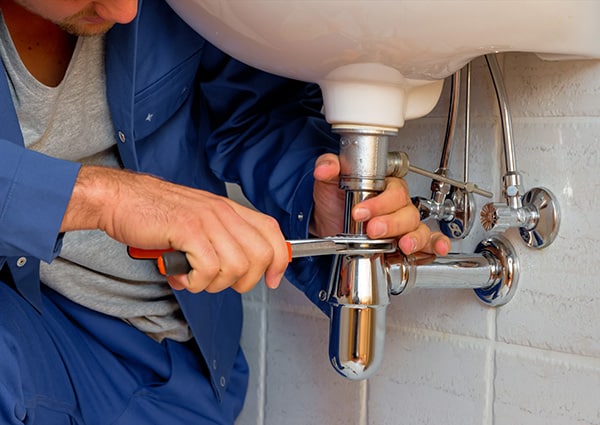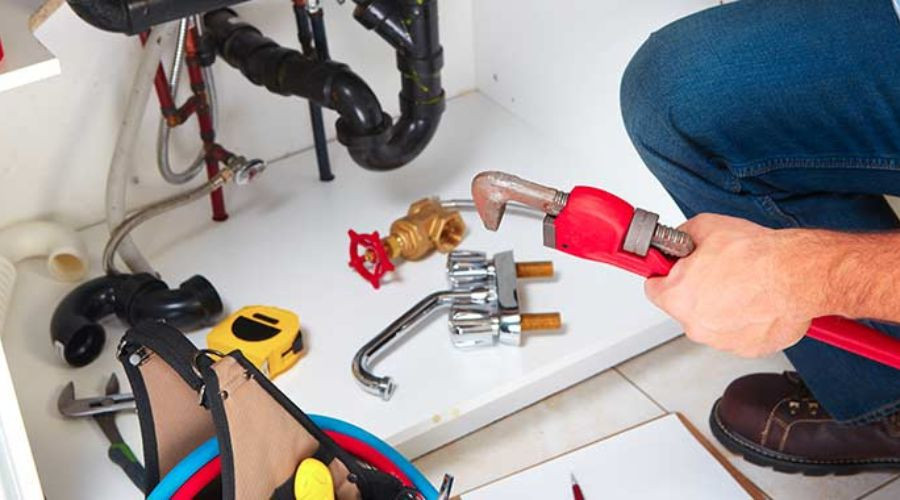As the world shifts towards more sustainable living practices, the concept of off-grid living is becoming increasingly popular. For homeowners and real estate developers alike, understanding the intricacies of plumbing for off-grid new homes is crucial. This guide aims to provide a thorough understanding of the essential aspects of off-grid plumbing systems, ensuring that your new home is both efficient and environmentally friendly.

Understanding Off-Grid Plumbing
Off-grid plumbing systems differ significantly from traditional systems. These systems are designed to operate independently of municipal water supplies and sewage systems. Instead, they rely on alternative sources and methods to provide water and manage waste.
Key Components of Off-Grid Plumbing
The primary components of an off-grid plumbing system include water sourcing, water storage, water purification, and wastewater management. Each of these elements must be carefully planned and executed to ensure a reliable and sustainable plumbing system.
Water Sourcing for Off-Grid Homes
One of the first steps in designing an off-grid plumbing system is determining how water will be sourced. Common options include rainwater harvesting, groundwater wells, and surface water sources like lakes or rivers.
Rainwater Harvesting
Rainwater harvesting is a popular option for off-grid homes due to its sustainability and cost-effectiveness. This method involves collecting and storing rainwater for use in the home. It’s essential to have a proper system in place to ensure the water is clean and safe for use. For more information on designing a rainwater harvesting system, you can visit HowStuffWorks.
Groundwater Wells
Drilling a well is another viable option for sourcing water. However, this option requires a significant upfront investment and ongoing maintenance. It’s crucial to conduct thorough research and potentially hire professionals to ensure the well is properly drilled and maintained.
Water Storage Solutions
Once the water source is established, the next step is ensuring adequate storage. Water storage tanks should be strategically placed to facilitate gravity-fed distribution throughout the home. Additionally, it’s important to consider the materials used for these tanks to prevent contamination.
Choosing the Right Storage Tanks
When selecting water storage tanks, consider factors such as size, material, and location. Tanks should be large enough to hold sufficient water for daily use but not so large that they become difficult to manage.
Water Purification Methods
Purifying water is an essential step in ensuring that the water used in the home is safe for consumption. Various methods can be employed, including filtration, chemical treatment, and UV purification.
Filtration Systems
Installing a filtration system is one of the most effective ways to purify water. These systems can remove contaminants and improve the taste and smell of water. For more about the best filtration systems, check out Parker & Sons.
Wastewater Management in Off-Grid Homes
Managing wastewater is another critical aspect of off-grid plumbing systems. Unlike traditional homes connected to municipal sewage systems, off-grid homes must have their own systems for treating and disposing of wastewater.
Septic Systems
Septic systems are commonly used in off-grid homes to treat wastewater. These systems use natural processes to break down waste and treat water before it’s released into the environment.
Composting Toilets
Composting toilets offer an alternative solution for managing human waste. These toilets decompose waste into compost that can be safely used as fertilizer. They are environmentally friendly and reduce water usage.
Energy Considerations for Off-Grid Plumbing
Another important aspect of plumbing for off-grid new homes is energy efficiency. Off-grid systems often rely on renewable energy sources such as solar or wind power to operate, making energy-efficient appliances and practices crucial.
Solar Water Heaters
Solar water heaters are an excellent option for off-grid homes. They use solar panels to collect and store heat, providing a sustainable and cost-effective way to heat water.
Energy-Efficient Appliances
Using energy-efficient appliances can significantly reduce the energy consumption of an off-grid plumbing system. Look for appliances that are designed to operate efficiently on limited power sources.
Maintenance Tips for Off-Grid Plumbing Systems
Regular maintenance is vital to ensure the longevity and efficiency of your off-grid plumbing system. Simple practices like cleaning filters, inspecting tanks, and checking for leaks can go a long way in maintaining your system.
Routine Inspections
Conducting routine inspections can help identify potential issues before they become major problems. Regularly check all components of your plumbing system to ensure everything is functioning correctly.
Professional Services
While many maintenance tasks can be handled by the homeowner, some aspects of off-grid plumbing may require professional assistance. Hiring a professional for tasks like well maintenance or septic system servicing can help ensure your system remains in top condition.
Benefits of Off-Grid Plumbing Systems
Off-grid plumbing systems offer numerous benefits, including reduced environmental impact, cost savings, and increased self-sufficiency. By understanding and implementing the principles of off-grid plumbing, homeowners can enjoy a more sustainable and independent lifestyle.
Environmental Impact
One of the most significant benefits of off-grid plumbing systems is their reduced environmental impact. By utilizing alternative water sources and waste management systems, these systems minimize the strain on local resources and reduce pollution.
Cost Savings
While the initial investment for off-grid plumbing systems can be significant, the long-term cost savings often outweigh these costs. Off-grid systems reduce or eliminate monthly utility bills, resulting in substantial savings over time.
Conclusion
Understanding plumbing for off-grid new homes is essential for anyone considering this sustainable lifestyle. By carefully planning and implementing a well-designed system, homeowners can enjoy the benefits of independence, sustainability, and cost savings. For more information on related topics, you can explore stormwater drainage and basement plumbing.

FAQs
What is the best water source for off-grid homes?
The best water source depends on the location and availability of resources. Common options include rainwater harvesting and groundwater wells.
How do I maintain an off-grid plumbing system?
Regular maintenance is key. Conduct routine inspections, clean filters, and hire professionals for complex tasks.
Are off-grid plumbing systems cost-effective?
While the initial setup can be expensive, off-grid systems often lead to long-term savings by reducing utility bills.
This article contains affiliate links. We may earn a commission at no extra cost to you.




